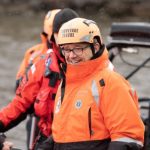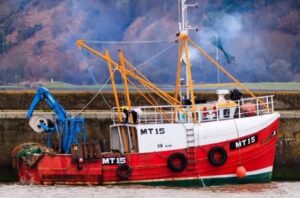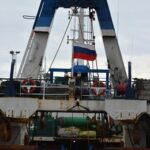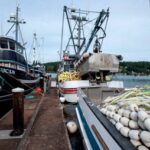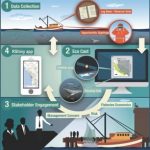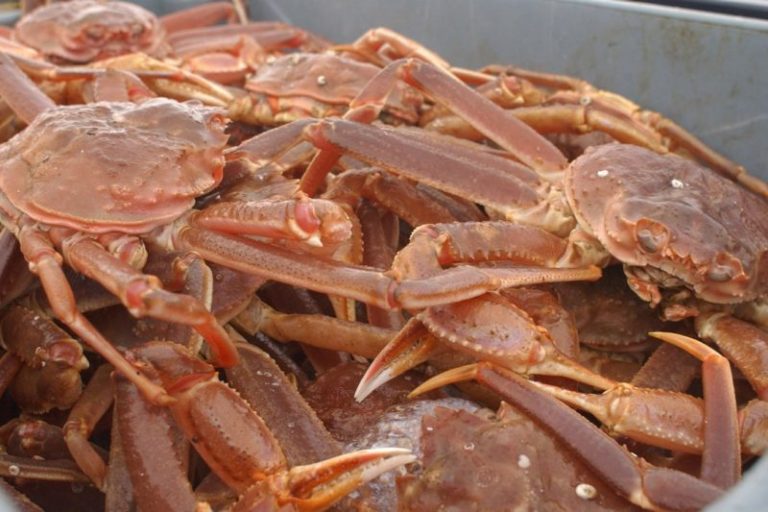Daily Archives: June 29, 2017
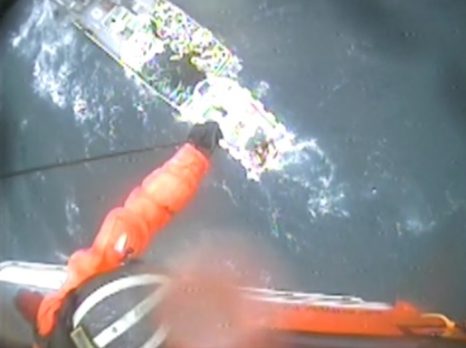
Coast Guard, good Samaritan vessel search for 2 missing Fishermen in Marmot Bay, Alaska
Coast Guard crews and a good Samaritan vessel crew are searching Thursday for one male and one female reported missing from the fishing vessel Miss Destinee that capsized in Marmot Bay. Coast Guard Air Station Kodiak MH-65 Dolphin and MH-60 Jayhawk helicopter crews, a Coast Guard Aids to Navigation Team Kodiak boatcrew and the crew of the good Samaritan vessel are searching near the location of the Miss Destinee, 23 miles north of Air Station Kodiak. The good Samaritan crew recovered two people aboard the Miss Destinee. One of the two was the master of the Miss Destinee, who confirmed there were two other people missing after a large wave capsized the vessel. Watchstanders at Coast Guard Sector Anchorage received a mayday transmission over VHF-FM channel 16 from the good Samaritan at approximately 7:30 a.m., Thursday, to coordinate a search for the missing boaters. The good Samaritan crew reported they recovered the master and his crewman from the Miss Destinee click here to read press release View hoist video 19:45
Shrimp-net violation leads to drug bust
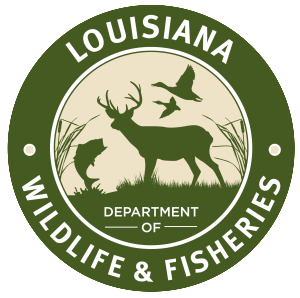 A routine vessel inspection turned into an unusual bust for Louisiana Department of Wildlife and Fisheries agents Tuesday, the agency reported. Agents working state offshore waters under a joint enforcement agreement with the federal government made contact with a 42-foot shrimp boat captained by Anouda Lirette, 39, of Bayou Dularge. While inspecting the boat, agents noticed the skimmer nets were oversized, and also saw dead seagulls on the boat’s deck, the department reported. Upon further investigation, agents say they found a .22-caliber rifle, marijuana, crystal methamphetamine and drug paraphernalia on board.,,, click here to read the story 17:49
A routine vessel inspection turned into an unusual bust for Louisiana Department of Wildlife and Fisheries agents Tuesday, the agency reported. Agents working state offshore waters under a joint enforcement agreement with the federal government made contact with a 42-foot shrimp boat captained by Anouda Lirette, 39, of Bayou Dularge. While inspecting the boat, agents noticed the skimmer nets were oversized, and also saw dead seagulls on the boat’s deck, the department reported. Upon further investigation, agents say they found a .22-caliber rifle, marijuana, crystal methamphetamine and drug paraphernalia on board.,,, click here to read the story 17:49
Massachusetts Appeals Court Upholds Applicability of WPA to Commercial Fishing Techniques Using Hydraulic Dredging Methods
 The Massachusetts Appeals Court upheld the applicability of the state’s Wetlands Protection Act (WPA) to commercial fishing activities using hydraulic dredging methods on land under ocean and nearshore areas, clarifying municipal authority to impose additional requirements on activities in wetlands in relation to shell fishing. However, in the same opinion, the Court concluded that a town bylaw prohibiting hydraulic dredging in nearshore areas without a permit is preempted by state law as applied to sea clam and quahog harvesting. In Aqua King Fishery, the Conservation Commission of Provincetown alleged that Aqua King Fishery, LLC violated both Provincetown’s Wetlands Bylaw and the WPA when it failed to obtain the Commission’s approval for the use of hydraulic dredge fishing gear for commercial sea clam fishing near Provincetown’s shore. click here to read the story 16:22
The Massachusetts Appeals Court upheld the applicability of the state’s Wetlands Protection Act (WPA) to commercial fishing activities using hydraulic dredging methods on land under ocean and nearshore areas, clarifying municipal authority to impose additional requirements on activities in wetlands in relation to shell fishing. However, in the same opinion, the Court concluded that a town bylaw prohibiting hydraulic dredging in nearshore areas without a permit is preempted by state law as applied to sea clam and quahog harvesting. In Aqua King Fishery, the Conservation Commission of Provincetown alleged that Aqua King Fishery, LLC violated both Provincetown’s Wetlands Bylaw and the WPA when it failed to obtain the Commission’s approval for the use of hydraulic dredge fishing gear for commercial sea clam fishing near Provincetown’s shore. click here to read the story 16:22
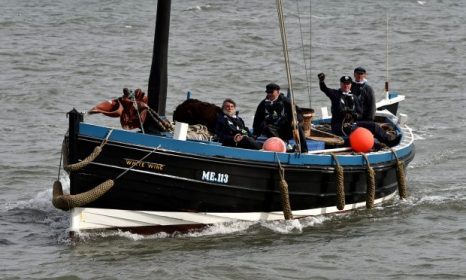
Historic Mearns fishing vessel returned home after 75 years
For decades the baldie drifter White Wing set off on daily journeys from the small harbour, creeling and laying mussel-baited lines in pursuit of east coast haddock. The 33-foot boat, registered ME 113, served Gourdon well before going on to fill a small screen role in a television documentary about Scotland’s fishing industry. It was subsequently gifted to the Scottish Fisheries Museum at Anstruther, and as part of a weekend tour of the north east during which it visited both Gardenstown – where she was built in 1917 – and the Portsoy boat festival, before the evocative sailing into Gourdon harbour. The clinker-built boat was a smaller version of the Fifie herring drifters common along the country’s east coast. click here to read the story, see more images 13:16
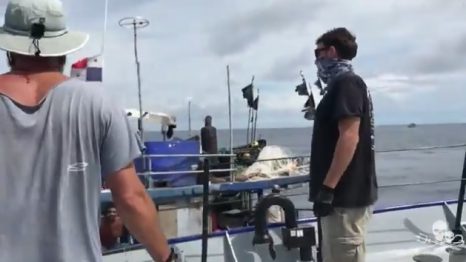
Sea Shepherd Vessel Rammed By Fishing Boat in Panama
A Sea Shepherd vessel suffered minor damage on Wednesday when it was rammed by a fishing boat while patrolling in the Coiba marine reserve, off the Pacific coast of Panama. While monitoring and documenting fishing boats engaged in long-line fishing inside the reserve, the anti-poaching group’s cutter, the M/V John Paul DeJoria, was surrounded by five fishing boats at around 3pm. According to the crew, the fishermen threatened the non-profit marine protection group by throwing items at John Paul DeJoria, while gesturing and shouting aggressively. Then, the 110-foot Island class patrol boat was rammed by one of the five boats and suffered minor damage. video, read the story here 12:55
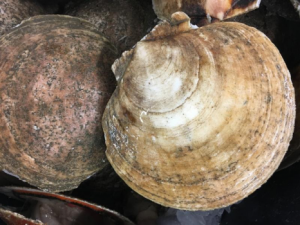
NMFS Proposes State Water Exemptions for Scallop Fisheries in Maine and Massachusetts
The National Marine Fisheries Service is seeking comment on a proposed rule that would revise the State Waters Exemption Program under the Atlantic Sea Scallop Fishery Management Plan. Under this proposed rule, vessels holding both a Massachusetts state scallop permit and either a Limited Access General Category (LAGC) Individual Fishing Quota (IFQ) or LAGC Northern Gulf of Maine (NGOM) Federal scallop permit could continue to fish in state waters once the Federal Total Allowable Catch (TAC) for the NGOM Management Area has been fully harvested. This action would also modify the State Waters Exemption for Maine, which already has this exemption for vessels holding state scallop permits and LAGC NGOM permits, to include vessels that have both a state scallop permit and an LAGC IFQ permit. Read the notice in the Federal Register 12:17
South Carolina restricts flounder fishing in an effort to help the species recover
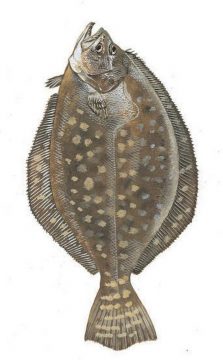 Anyone fishing for flounder from a dock or pier can keep only 10 fish per day, down from a limit of 15 flounder per day, according to restrictions approved this past spring by the Legislature. Fishing boats can keep no more than 20 flounder per day, regardless of how many anglers are in the vessel.The previous boat limit was 30 flounder. The rules apply to recreational anglers as well commercial fishermen who use hooks and lines, according to the Department of Natural Resources. Violating the bag limit carries fines of $25 to $500 and possible jail time. In a news release Wednesday, DNR biologists said the tighter fishing limits mean 30 percent fewer fish will be landed in the next two years, giving flounder a chance to come back. click here to read the story 11:47
Anyone fishing for flounder from a dock or pier can keep only 10 fish per day, down from a limit of 15 flounder per day, according to restrictions approved this past spring by the Legislature. Fishing boats can keep no more than 20 flounder per day, regardless of how many anglers are in the vessel.The previous boat limit was 30 flounder. The rules apply to recreational anglers as well commercial fishermen who use hooks and lines, according to the Department of Natural Resources. Violating the bag limit carries fines of $25 to $500 and possible jail time. In a news release Wednesday, DNR biologists said the tighter fishing limits mean 30 percent fewer fish will be landed in the next two years, giving flounder a chance to come back. click here to read the story 11:47
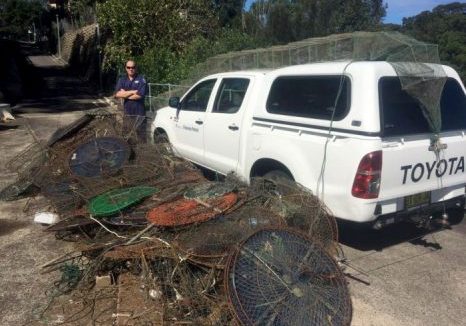
Drones and high-tech cameras used to catch illegal crabbing activity in New South Wales
More than 460 crabbing offences have been detected by the NSW Department of Primary Industries during the six-month Operation Portunus. The 60 officers involved used drones and long-range surveillance cameras to locate illegal traps and crab fishing activity up and down the east coast of the state. Director of fisheries compliance Patrick Tully said the statewide operation had been aimed at reducing illegal crab trapping. “Crabs are very valuable. They’re easy to catch but there are rules,” he said. “Anything that we detect that’s outside the rules we treat as illegal fishing, and we hope people understand that in those situations you can face some pretty tough consequences.” click here to read the story 09:23
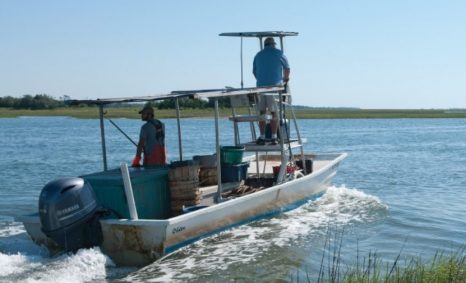
A Fisherman’s Life – Sammy Corbett
When you live and breathe fishing, it’s important to keep an ample supply of bait on hand. Time spent running to the store is time that could be spent on the water. Sammy Corbett found a simple fix to the problem. “I remember he used to live on Pelican Drive in Wrightsville Beach,” says childhood friend Robbie Wolf. “He drained his parents’ swimming pool and pumped salt water in so he could store live bait in it.” When you live and breathe fishing, you don’t let a little spell of bad weather stop you. “Me and him went trout fishing one day and we were about to freeze,” Wolf says. “He lit cans of Sterno and made a fire in the middle of the boat.” Those two stories sum up Sammy Corbett. He’s a fisherman. Period. He’s on the water every day, unless he has to go to a meeting. His expertise — and his reputation — led to an appointment three years ago as chairman of the North Carolina Marine Fisheries Commission. click here to read the story 08:58
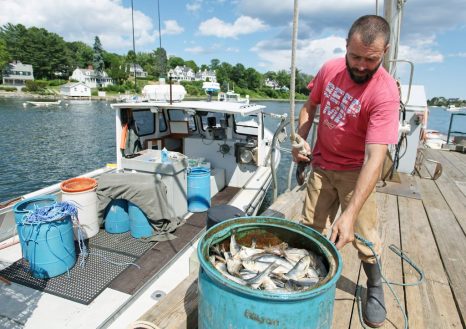
This year, a welcome switch on bait supply for Maine lobstermen
Bait freezers along the coast are full of herring and pogies, and even alewives, which means that bait is not only available, it is also much less expensive than last year when herring cost as much as 60 cents a pound, said Pat Keliher, commissioner of the state Department of Marine Resources. This year the lobstermen’s go-to bait costs about half as much. That’s still not a great price, Keliher said. Herring fetched about 18 cents a pound at the start of the 2015 lobstering season. “I won’t say we’re in great shape, but we are in a heck of a lot better shape than we were last year,” Keliher said. He attributed the strong start to basic supply-and-demand economics. click here to read the story 08:18



































